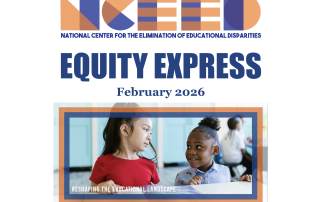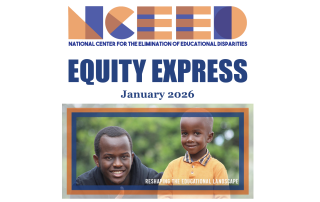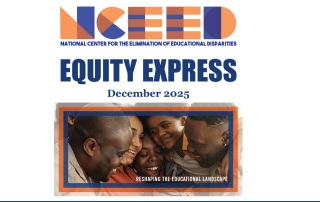NCEED Newsletter
February 2026
People often say that our public schools try to do too much; that schools should not be responsible and accountable for “all of society's problems.” However, the reality is that schools do not get to choose which issues they get to [...]
January 2026
Each January, the calendar resets, classrooms reopen for a new semester, and we collectively get another chance to do school differently – and better. In this edition of Equity Express, as schools launch the second semester, we lean into a theme [...]
December 2025
Every edition of The Equity Express provides me with the opportunity to reflect on significant federal, state, and local programs, policies, and initiatives significant research; and momentous milestones and ev ents that have impacted the lives of students, families, teachers, and/or [...]
November 2025
November marks the beginning of the holiday season, and for educators, this is always an exciting time of year. But it is also a time to provide support for those children and families who are less fortunate.
October 2025
Principals are the difference between a great school and a poor one! Great principals set high expectations and build positive school climates and cultures. As October is National Principals Month, we at NCEED celebrate the excellent work of great principals and [...]
September 2025
The new Maryland state literacy policy is already in full swing. Many of the key components are among the areas where The National Center for Elimination of Educational Disparities (NCEED) can provide technical assistance to school districts, and where NCEED will [...]








